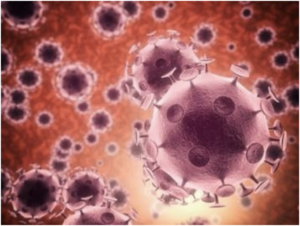The gut microbiome continues to gather interest of both the public and scientists. Researchers in the field have just scratched the surface of its complexities and significance within the body – however, scientists are now confident that maintaining a healthy gut microbiome is essential to maintaining overall health.(1)
The Microbiome

Prior to addressing the gut microbiome, it is important to establish that within us all is what is known as the human microbiome – which is all the microbes i.e. bacteria, fungi and viruses in the body and their associated genes. Therefore, the gut microbiome simply refers to the microbiome which is situated in the gut. Within the gut, most of the bacteria are in the lower end of the bowel (large intestine). This bacterial community within the gut, or ‘flora’, are unique to every individual, much like a fingerprint, and interestingly, there is no ‘perfect’ combination of them.(2) It has been proven that dietary changes can significantly alter the gut microbiome, even within 24 hours(1).
Fun fact 💡 the body contains just as many bacteria as it does cells! (2)
The gut microbiome is all about balance
There are two categories of bacteria within the gut microbiome.
- Beneficial bacteria or ‘good’ bacteria promote beneficial processes in the body such as vitamin synthesis and improved immune function. Examples include Lactobacillus and Bifidobacteria. Lactobacillus is likely to be the one you have heard of as it is present in yoghurt. (3)
- Pro-inflammatory or ‘bad’ bacteria trigger harmful processes within the body such as carcinogen production and gut infections. (3)
It is important to highlight that at any one time all humans have both ‘good’ and ‘bad’ bacteria within their gut and therefore the microbiome is all about achieving a balance. The human body is performing a marvellous dance of metabolic reactions which allow it to remove these bad bacteria effectively without making us ill.
Benefits of a healthy gut microbiome (1,4)
- Reduction in cancer risk – when the bacteria help breakdown dietary fibre they produce compounds like butyrate, a short chain fatty acid, which has been linked with the reduction of colon cancer.
- Improved blood glucose levels – in some scenarios, increased activity of good bacteria has led to production of compounds which help control blood glucose more easily, reducing the likelihood of developing diabetes.
- Better protection – the gut plays an essential part in the immune system of the body.
- Improved vitamin uptake – bacteria help to absorb vitamins such a B12 and vitamin K more efficiently.
Diet & The Gut Microbiome (5)
Below are some key elements that help to create a healthy gut microbiome.
-
- Increase variety – introduce as many colours on your plate as possible – eat the rainbow. 🌈
- Have more fruit and vegetables – aim for 5 a day
- Increase fibre – Most people in the UK do not meet the recommended 30g fibre/day – so try adding an element of extra fibre such as wholegrain cereal or a palmful of nuts and seeds.
- Try some fermented foods such as yoghurt, kimchi or kombucha
- Take a vitamin D tablet in the winter months for immunity – in the UK there is not enough reliable sunlight over these months to ensure adequate levels of vitamin D.
Our Tips

Dietary changes should be simple and gradual so that they can be sustainable
For example:
- When you do your food shop grab a vegetable that you haven’t tried before, or that has recently come into season
- Try incorporating yoghurt (which contains live bacteria) into your breakfast at least once a week – this is also a great source of protein which will keep you fuller for longer.
Overall, our diet can have a huge influence on our gut microbiome and health in many areas. This includes immunity, nutrient absorption, and function of metabolic processes.
Get in touch for a consultation with one of our Registered Dietitians if you would like personalised advice on how to improve your gut health.
By Grace Arrowsmith, dietetic student. Reviewed by Reema Patel, Registered Dietitian, MSc
References
- Singh RK, Chang HW, Yan D, Lee KM, Ucmak D, Wong K, et al. Influence of diet on the gut microbiome and implications for human health. Vol. 15, Journal of Translational Medicine. BioMed Central Ltd.; 2017.
- British Dietetic Association (BDA). Give your friendly gut bacteria a helping hand. 2019.
- Telle-Hansen VH, Holven KB, Ulven SM. nutrients Impact of a Healthy Dietary Pattern on Gut Microbiota and Systemic Inflammation in Humans. 2018; Available from: www.mdpi.com/journal/nutrients
- Menni C, Jackson MA, Pallister T, Steves CJ, Spector TD, Valdes AM. Gut microbiome diversity and high-fibre intake are related to lower long-term weight gain. International Journal of Obesity [Internet]. 2017;41:1099–105. Available from: www.nature.com/ijo
- Bussel G. Looking after your gut health by looking after the microbiome. Nutritionist Resource. 2021.







